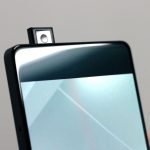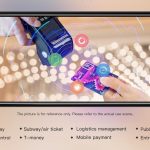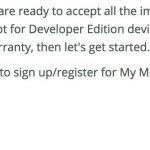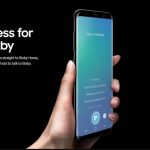The First Ubuntu Phone Won’t Rely On Apps. Here’s Why That’s Brilliant
Canonical wants to move us away from the app-centric mobile experience.
The mobile market is saturated. Any new entrants are doomed from the start. And if you need proof, just look at Windows Phone or BlackBerry. The problem is that you need an app ecosystem to gain market share, but you need market share in order to entice developers to your platform.
So goes the prevailing wisdom. But it’s in that context that Canonical, the creators of the free, open-source Linux-based OS Ubuntu, and Spanish manufacturers BQ will officially launch the first Ubuntu phone next week, starting in Europe. But when they do, the phone—called the Aquaris E4.5 Ubuntu Edition—won’t feature apps. Instead, Ubuntu will have a new user experience paradigm called Scopes.
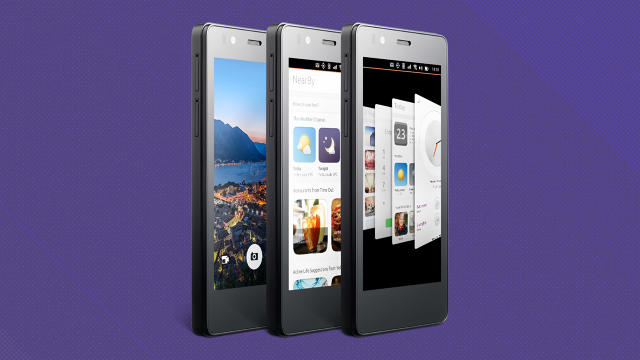
Scopes are essentially contextual home-screen dashboards that will be much simpler and less time-consuming to develop than full-on native apps. They function by presenting related content from different providers alongside each other on one screen. The music Scope will pull songs from Grooveshark alongside music stored locally on your device, without strong differentiation between the two. A “nearby” Scope would show suggestions from Yelp, reviews from Time Out, and your local weather all on the same screen.
“We’re producing an experience where content and services come directly to the screen in an unfragmented way,” says Cristian Parrino, VP of Mobile at Canonical. “It makes for a much richer and faster user experience.”
The user experience offered by Scopes seems a lot more intuitive than the “app grids” that dominate most devices. Apps offer distinct, siloed chunks of information or content. But what users are really after is the content those apps bring them. When you want to listen to Nas’s Illmatic you don’t think “I want to fire up Grooveshark so I can listen to Illmatic.” You just think “I really want to listen to the one of the greatest rap albums of all time right now.”
The latter experience is what Scopes offers. If apps are content silos, Scopes are windows into each silo showing exactly what you need when you need it.
Granted, something approaching this experience could be created with custom skins or heavy use of widgets on Android, but it’s far from the default, at best doesn’t create a consistent interface, and still has significant overhead for developers.
While Scopes sounds like a compelling user experience, it also reveals something about Canonical’s strategy for entering a crowded mobile market.
Canonical knows that developers are already stretched thin maintaining apps for both Android and iOS. Android and iOs collectively account for upwards of 95% of all smartphone operating systems. Even with Microsoft backing it, Windows Phone can’t get much traction. And it took a long time for Android to build up its app ecosystem.
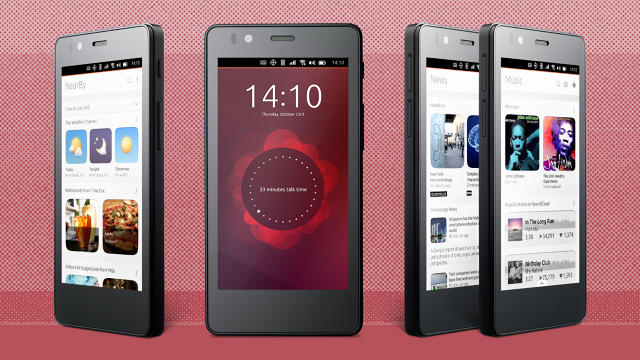
Tackling The Chicken And Egg Problem
It’s bad for users when the sole criteria for what technology succeeds is first-mover advantage. We’ve seen this time and time again, whether it comes to operating systems or social networks: It’s hard to break away from a piece of technology, even for something objectively better, once everyone else is using it or making software for it. Scopes is Canonical’s attempt at a solution to the chicken-and-egg problem of apps ecosystems.
“Scopes can be developed for a fraction of the cost of a traditional app,” says Parrino. “They also have the benefit of being integrated to the phone’s core experience.”
By lowering the barrier to entry, Canonical hopes to attract name-brand content providers to the platform. So far it’s off to a good start with Facebook, Twitter, eBay, Amazon, Time Out, Yelp, SoundCloud, and Grooveshark. There are also community-developed Scopes for Dropbox and Spotify using their APIs.
Even so, it’s likely that Canonical will tap into its open source roots and rely heavily on the dedicated community of Linux coders to create more third-party Scopes. That way the Ubuntu phone users will still be able to get companies that aren’t willing to commit even to relatively modest Scope development.
The phone will go on a “flash sale” next week in Europe, with the exact times announced by the Ubuntu and BQ Twitter accounts. But given its specs and Ubuntu’s low profile, we shouldn’t expect this device to top any charts. Canonical itself acknowledges that the phone is targeted at early adopters and developers.
The phone’s specs are decidedly middle-of-the-road: capable, but not a powerhouse. The Aquaris E4.5 Ubuntu Edition is a modified version of BQ’s existing Aquaris 4.5 Android phone and will retail for the same 169 euros. Specs include a 4.5-inch screen, 1.3 GHz MediaTek Quad Core processor, 1 GB of RAM, 8 GB of flash storage, and 5 and 8 megapixel front and rear cameras, respectively.
Those who have been following Ubuntu for a while might recall the failed Indiegogo campaign for its own Ubuntu Edge device in 2013. The campaign smashed records for crowdfunding campaigns, but failed to meet its $32 million do-or-die target. The Ubuntu Edge advertised device “convergence,” an alluring paradigm in which users would have one smart device that could transform into tablet or desktop form factors when connected to peripherals.
Canonical is shooting lower this time around, and the Aquaris seems to be more of a proof-of-concept to see how the device is received by developers and Ubuntu’s base of enthusiasts. The phone doesn’t boast any convergence features and Parrino says that idea is still on their radar and may be explored further down the line. Notably, the Aquaris will not have Snappy Core, Ubuntu’s newly announced Internet of Things controller meant to power drones and home automation systems, though that will likely be rolled out in future iterations, says Parrino.
The phone will only be available in Europe for the time being, where the far more sane mobile carrier regime lets people switch SIM cards in and out of phones easily. That makes it significantly easier for users to try out the device without having to sign up for a new contract just to get the phone.
It’s likely that Canonical is testing the waters and hoping to leverage success in Europe into a deal with a U.S. cell phone company in the not-too-distant future. Ever since beginning to work on Ubuntu for phones, Canonical has had a Carrier Advisory Group that includes the likes of T-Mobile and Verizon. Both of those companies are no doubt watching sales and developer reactions very closely.
In the meantime, Canonical will be watching to see just how tired of the app experience users really are, and if Scopes can offer a kind of novel relief.
“The experiences Android and iOS are delivering have been pretty much the same since the first iPhone came out,” says Parrino. “People are craving for something new.”
(133)




